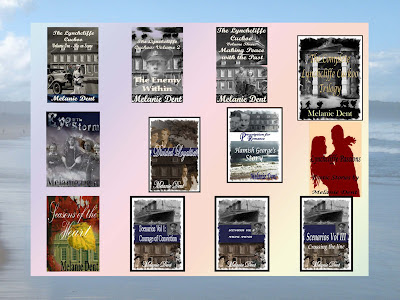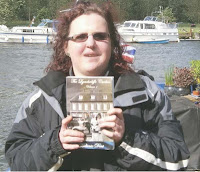Characteristics of the true eunuch –
the results of my research and my conclusions
Some years ago, I had my pet dog desexed. He sulked for a few days and then forgave me. What choice did he have? I started wondering how a boy would react in the same situation. And so was born Shuki, a half-starved child from the slums of a city in Arabia, who was taken by a rich man who changed his life. Shuki Bolkiah, clever, cunning and courageous, became the hero of two published books, and with a third and fourth on the way.
‘Not a Man’ and ‘The King’s Favourite’
are published and can be bought on several online sites.
It was not easy to find information on eunuchs – mostly because true eunuchs - that is, normal boys castrated before puberty - are very rare. This is as it should be. It would be a terrible thing to do to a young boy – a mutilation even worse than many African and Arabic cultures do to their unfortunate girls.
In any country with a decent health system, if a boy is castrated because of accident, disease, or abnormalities with his testicles, he would be treated with hormones in order to give him as normal a life as possible. They are therefore not true eunuchs. If there are any true eunuchs out there, they are not talking.
A side note: castration is removal of the testes. It is not necessary to touch the penis to make a eunuch, and those men who have had their penis removed for whatever reason, are not eunuchs unless there was also a castration.
But millions of animals are castrated every year, and humans are a part of the animal kingdom.
Owners of dogs are urged to castrate their male puppies in order to reduce possible aggression, eliminate embarrassing sexual behaviour, reduce the desire to stray and to reduce the numbers of unwanted puppies.
Male cats are routinely castrated. The normal behaviour of a tom cat includes marking his territory with an odour offensive to human noses, wandering in search of females, and mating and fighting behaviour tends to be not only noisy, but outside bedroom windows in the early hours of the morning.
Male pigs, cattle and sheep are routinely castrated unless wanted for breeding. It reduces aggression and it means that they grow fatter and more tender to eat. The meat of a bull, a ram or a boar is supposed to have a strong and unpleasant flavour, unsuitable for eating.
Male horses are routinely castrated. It makes them more amenable to training, it reduces aggression, and it makes them less likely to be distracted by the scent of a mare. It is quite rare now that a stallion is used as a riding horse. For dressage however, such as the famous Spanish Riding School of Vienna, stallions are preferred for their greater muscularity.
If humans are like other animals, then castration before puberty would virtually eliminate sexual behaviour, it would reduce aggression, and the normal muscular development of a boy at puberty would not occur.
It would not make him more intelligent, though at times, he could certainly appear more intelligent, for instance at school when he takes notice of the work instead of the girlfriend.
It would not make him more attractive, except that the appearance of boyhood is preserved for longer.
What we do know about eunuchs.
The voice:
The pre-adolescent voice is preserved. This is not the voice of a woman or a girl, but something different. A boy sounds different from a girl, just not as different as a man sounds different from a woman. It is well known that in olden times, boys were often castrated in the hope that they would become famous singers or at least able to earn a living as a singer. The most well known are the Castrati of Italy, though it has occurred in other cultures and at other periods of history as well. It is rumoured that some present-day male singers make use of chemicals to try and preserve their soprano or tenor voices, and some choir boys are heart-broken when their voice breaks and they are no longer wanted in the choir.
Hair:
Eunuchs do not develop hair as mature men and women do. They are not hairless – children have a thin covering of body hair, just that the growth of hair on pubis and in armpits would not occur, and certainly not the facial and chest hair that men grow. In later life, they do not show male pattern baldness.
Height:
There is an opinion that a eunuch grows far taller than a normal man. Evidence for this is that there are old descriptions of Castrati being very tall. It is supposed to be because the places where growth occurs, especially in legs and arms, (the epiphyseal plates) do not seal over until later in life, so that the individual grows taller than normal.
But we can look at castrated dogs and cats and cattle. If they grow taller than usual, it is only by a small amount. I did find a note that a gelding was likely to be an inch or two taller than a stallion of the same blood, but I have not seen anything else. A picture of a Chinese eunuch shows him as a small man, neither tall nor fat.
Build:
When a boy goes through puberty, his shoulders broaden, his genitals become bigger, and he gets bigger as well as taller. His muscles develop and he becomes a lot heavier than a female. There is a growth spurt – that is, a period when he grows very fast.
A eunuch? Maybe something between a boy and a girl. These are my conclusions – that he would remain looking like a child in some ways – hairless, without bulky muscles, there would be little growth of genitals and there would be a gradual increase in height and weight rather than the growth spurt that most boys experience.
Pheromones:
In the reproductive years, both men and women smell different than they do in childhood and in old age. This is because of the pheromones that are produced by the body. Pheromones are all to do with sex. It is very likely that a eunuch would not produce pheromones as an entire male does, and so would have much less body odour.
Sex
Does a eunuch want sex? A male animal that is castrated late sometimes continues to show sexual behaviour – a gelding might mount a mare, for instance – it is sometimes referred to as being ‘studdy.’ A mature man who’s been castrated for medical reasons might still be able to make love with his wife, but more usually, he cannot and feels no desire to do so.
Animals that are castrated early do not appear to feel any sexual desire at all, but a human male knows about sex, could easily wish that he could indulge, and could look for it. Of the few eunuch books that I’ve read, at least half speak of eunuchs having very active sex lives – with men and with women, even taking an active role. Some say that eunuchs were greatly desired because they could last longer than a normal man and satisfy many women.
I feel this is extremely unlikely, and has more to do with fantasy than reality. If a true eunuch could achieve an erection, it would be likely to be neither very firm nor very long-lasting. And why would a eunuch bother trying if he does not have the need?
In my opinion, the books and short stories that have a eunuch as some sort of an untiring sex-machine are the product of fantasy, not reality.
Later life: Eunuchs are said to grow small breasts – gynecomastia, and are often obese. Testosterone is the male hormone. In the absence of that, there would naturally be a tendency to a more female shape, including the tendency to lay down fat.
Attraction to men.
There are historical records of eunuchs being particularly desirable to both men and women – ‘a strange allure’ one source said. If a pretty boy is castrated for the purpose of sex as in some cultures, he might well be more alluring than a normal boy as he grows. There is also the fact that he would stay looking like a boy for longer, and some men are attracted to boys. But there is no evidence at all that a normal boy castrated before puberty would develop the kind of allure that I have described in my hero. This is pure fiction.
My stories: what I have used and what I have ignored.
For the most part, my hero, Shuki, shows the characteristics as described. He does not mature as a normal boy matures, his voice is not the voice of a man, and when in his twenties, he does show the characteristic of small breasts.
There is no growth spurt, but he grows taller gradually. He stays slim. A factor in that could be because he was half-starved as a small child, but also that he is very conscious that he could be prone to becoming fat, and so takes care to eat lightly and exercise daily.
I have shown Shuki as very attractive to men – even to men not normally homosexual, and not normally attracted to boys. In his home country, there is a tradition that has never quite died – that of having a boy for sex, a wife or wives for children. It is natural that men in this culture, seeing this beautiful boy, knowing of his role as bed-boy to the Master, would think of him as a sexual object and want him in that way.
Then he goes to England. There are still some men who find him attractive, but most do not. Most don’t even think of it.
He goes to Oxford, and lives with the score of men in ‘Laurence Hall.’ (fictional.) A couple of them try and seduce him. The idea spreads, and it becomes a sort of a competition, a game. More become interested. Shuki is attractive, certainly, but the rape that spells the end of his stay in Oxford and results in the death of his best friend, is because the men spent too much time thinking about him. It was not that he so irresistibly attractive – rather that they talked themselves into finding him irresistibly attractive.
Thus my books, ‘Not a Man,’ and ‘The King’s Favourite,’ plus the two yet to be published.
There will be four in the series.

























